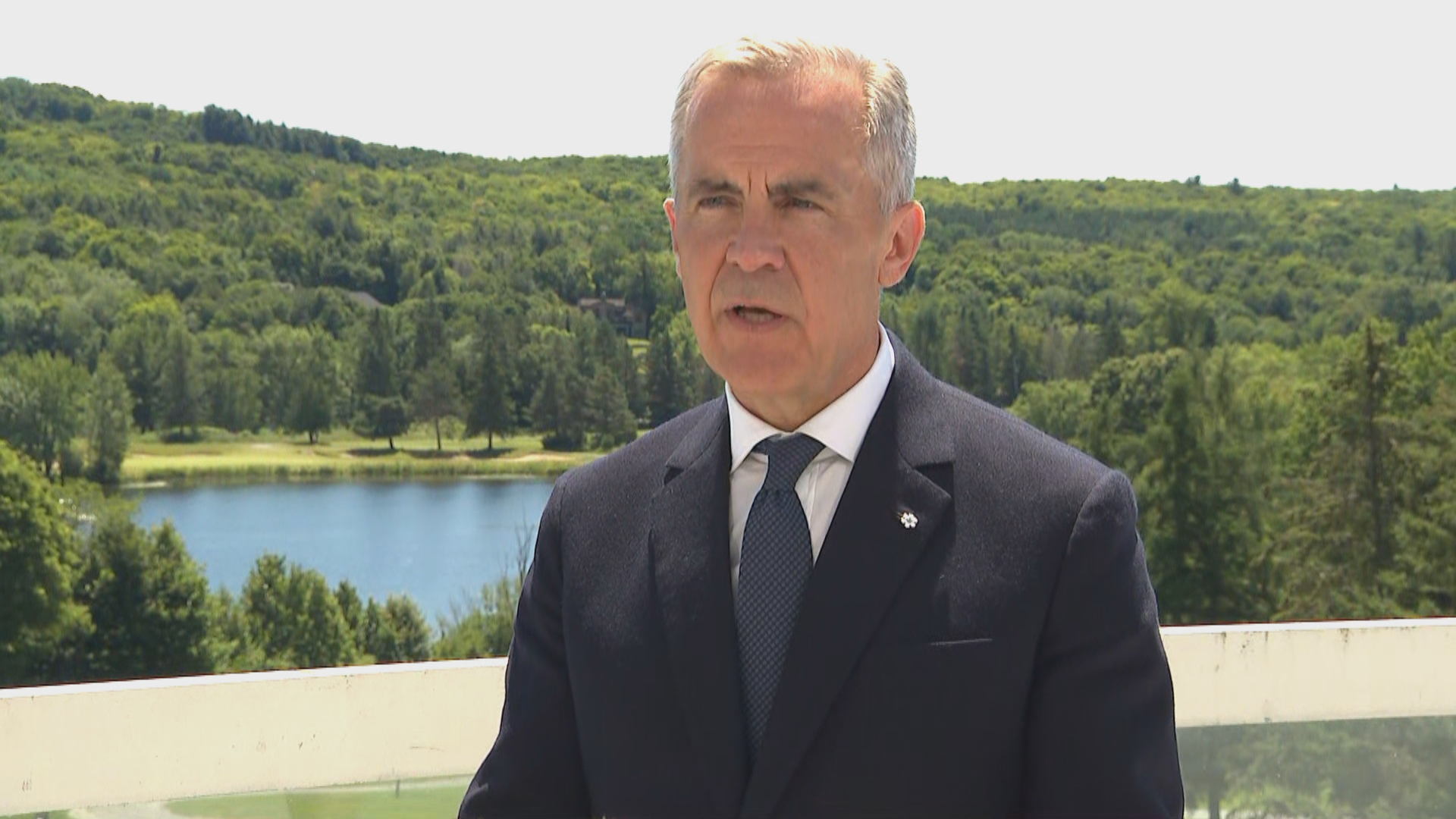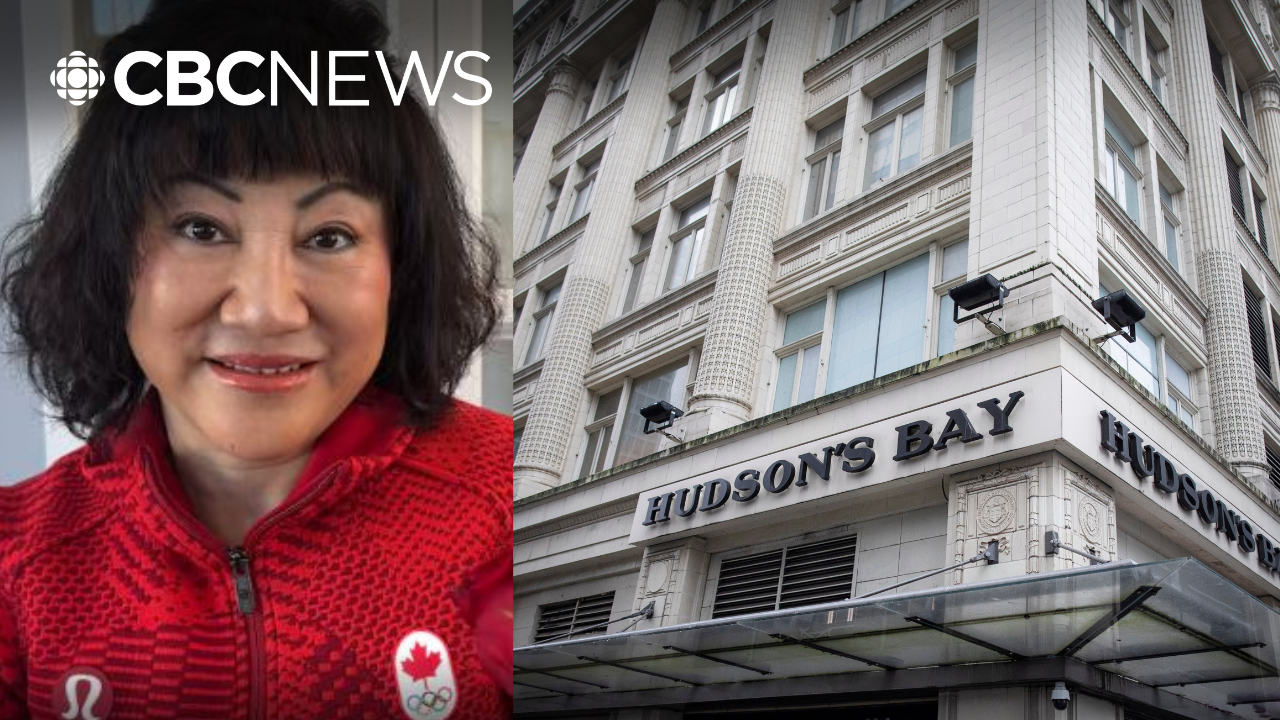Maple Leaf chairman Michael McCain knew about alleged bread price fixing, document suggests

With an investigation continuing in the wake of Canada Bread’s plea of guilt for its role in one of the country’s biggest price-fixing scandals, a document on file on the long-running case suggests federal authorities believed Michael McCain, executive chairman of Maple Leaf Foods, personal knowledge of the alleged plan.
The packaged meat company, which formerly controlled Canada Bread, expressed its dismay at the new owner’s admission of guilt this week, saying Maple Leaf Foods stands by its denial of any wrongdoing. The actions of Maple Leaf Foods and multiple supermarkets are still under investigation by the Competition Bureau following the plea deal and resulting $50 million fine.
According to a statement filed by the Competition Bureau as part of a 2019 search warrant application, the agency discovered “evidence that at least one senior executive within the Maple Leaf Foods organization, namely Michael McCain, had knowledge of the alleged anti-competitive conduct that be the subject of the (desk) investigation.”
In a statement to the Star on Friday, McCain denied any involvement in price-fixing, stating: “We have a culture that requires us to act with absolute integrity and we would never act illegally and were absolutely not part of any coordinated effort to set the price of bread.”
In support of the agency’s claim of McCain’s knowledge, the document references an email from 2007. At that time, and until 2014, Maple Leaf Foods also controlled Canada Bread, one of two commercial bakers at the center in a scandal over an alleged industry-wide effort to coordinate bread prices.
McCain, who served as CEO of Maple Leaf Foods in 2007, described in the email a “comprehensive conversation” he had with Paul Del Duca, then an executive at the grocery company Metro.
“One of the topics we vigorously discussed was strategy to increase category profit in the retail environment,” McCain wrote in the email, which he sent from his executive assistant’s account to Canada Bread and Maple Leaf executives. .
“Consistent with the position he took on the latest increase in the price of bread, his position (and it is a very strong position) is that this is an acceptable strategy and that they are in line with it even in our meat categories.” said the email.
The agency’s theory of the alleged scheme, as laid out in the court documents, was that it involved a practice known as the “socialization” of price increases by the two major bread suppliers – Canada Bread and Weston Foods – with their respective customers of supermarkets until all the parties finally agreed to the walks.
“This email reflects a routine conversation between a supplier and a customer,” McCain told the Star. “I’ve been selling food to retailers for 45 years in many thousands of individual sales conversations, and most of these conversations are about product, price and category management, because that’s our job as a supplier. All suppliers of consumer packaged goods participate in these discussions.”
In a separate statement, Maple Leaf Foods said the email was about “category management” and represented “universal normal business practice in the consumer packaged goods industry.”
“Retailers hold suppliers accountable for the performance of the products they sell to that retailer,” said Maple Leaf Foods, explaining that this is done through discussions about specific product categories, such as oral care or dairy, and that suppliers also negotiate business as good placement of the shelf.
“Price is always at the discretion of the retailer,” Maple Leaf said, adding, “We categorically reject anyone’s suggestion that this email is an indication that Michael McCain is aware of or involved in anything improper. .”
Canada Bread, the country’s largest producer and distributor of fresh bread and bakery products, was acquired by Mexico’s Grupo Bimbo in 2014.
On Wednesday, the company admitted that it had coordinated price hikes in the wholesale price of bread with its rival Weston Foods in 2007 and 2010-11. The company received some leniency for its cooperation with the investigation, but still had to pay the record $50 million fine.
When asked about the document and information about McCain, the Competition Bureau said confidentiality rules prevent it from saying more. The agency also said this week that it continues to investigate alleged price fixing by Maple Leaf Foods.
In 2019, the agency had previously searched the offices of major grocers and Canada Bread and was seeking the new search warrant because it believed many Canada Bread executives’ emails were on Maple Leaf’s servers.
“The price of fresh commercial bread was increased, through secret agreements made by senior executives at the suppliers (the bakers),” said the 2019 document, which was sworn in by Simon Bessette, Senior Competition Law Officer. “The price increases were facilitated by key decision makers at both suppliers and retailers (the grocers), allowing the alleged cartel to raise wholesale and retail prices.”
During these meetings between suppliers and retailers, the agency claimed that major grocers Loblaw, Sobeys, Metro, Walmart Canada and Giant Tiger “accepted the price increase on the condition that their retail competitors would also accept the price increase and maintain the fixed price for all retailers.” to enforce. ”
Following the guilty plea this week, Canada Bread’s new owner, Grupo Bimbo, said it was not told about “this prior conduct” during the sale process and is “considering all legal options against those responsible for the conduct.” Canada Bread reiterated that statement Friday and offered no further comment.
“Neither Maple Leaf Foods nor Michael McCain were aware of or involved in any attempt to coordinate the price of bread because, to our knowledge, no such attempt has taken place,” Maple Leaf Foods said Friday. “We have no idea why Canada Bread and its owner Grupo Bimbo entered into this plea deal and they have not consulted us about it.”
McCain comes from one of Canada’s wealthiest families and was CEO of Maple Leaf from 1998 until May of this year when he retired.
Known for his handling of the company’s listeria crisis, which resulted in the deaths of 23 people in 2008, McCain still exercises significant control over Maple Leaf’s stock and board of directors. (As of March, a company controlled by McCain owned 40 percent of Maple Leaf stock.)
The guilty plea did not name any specific executives, only referring to a “former senior officer,” who was CEO of Canada Bread and also a senior officer of Maple Leaf, who had conversations with one or more senior executives at Weston Foods.
Richard Lan, who was CEO of Canada Bread and chief operating officer of Maple Leaf in the relevant years, could not be reached by the Star for comment.
Lan was one of the executives featured in the 2007 McCain email.
The agency’s detailed allegations first surfaced when court documents (supporting a first round of search warrants) were filed made public in January 2018. At the time, the agency stated that it believed coordinated bread price increases occurred on at least 15 separate occasions, dating back to 2001.
The scandal came to public light a month earlier in late 2017 when Loblaw announced his involvement and offered consumers $25 gift cards as compensation. Loblaw and Weston Foods (owned at the time by the same parent company) had come forward in 2015 and were granted immunity from prosecution.
The agency said this week it continues to investigate the other grocers.
Metro declined to comment specifically when asked about McCain’s alleged email that referenced his conversation with Metro executive Del Duca.
Spokesperson Stephanie Bonk said the company was not involved in Canada Bread’s guilty plea, adding: “Metro continues to deny that it or any of its employees participated in a price-fixing operation or violated the Competition Act.”
Alison Scarlett, a spokesperson for Giant Tiger, said the company looks forward to “the results of the Competition Bureau’s full investigation” and that it “confirms our earlier assertion that we have no reason to believe that Giant Tiger or any of our employees have violated the Competition Act.”
Sarah Kennedy of Walmart Canada said the company takes its legal obligations seriously, adding: “We believe our employees have not violated the Competition Act.”
“From the beginning of that investigation, Empire has seen no evidence that it, or any of its employees, violated the Competition Act,” said Karen White-Boswell, a spokesperson for Empire-owned Sobeys.
While immune from criminal prosecution, Loblaw and Weston Foods (now owned by FGF Brands) are facing class action lawsuits approved by courts in Ontario and Quebec.
The Tyee previously reported on the application for the Maple Leaf search warrant.
“If you read the emails, it’s really controlled competition there,” said Keldon Bester, a former competition law associate at the agency and current director of the Canadian Anti-Monopoly Project, who reviewed the 2019 document.
“They’re discussing at the highest level of the company how the competition will go.”

:format(webp)/https://www.thestar.com/content/dam/thestar/business/2023/06/24/maple-leaf-chair-michael-mccain-knew-about-alleged-bread-price-fixing-competition-bureau-document-suggests/_2_michael_mccain_jpg.jpg)
:format(webp)/https://www.thestar.com/content/dam/thestar/business/2023/06/24/maple-leaf-chair-michael-mccain-knew-about-alleged-bread-price-fixing-competition-bureau-document-suggests/_3_maple_leaf_email_march_22_2007.jpg)


;Resize=620)

;Resize=620)
;Resize=620)